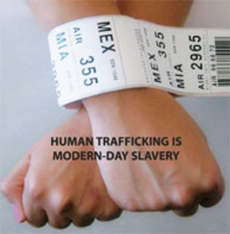fitness news
![]() ,
,![]()
Font size Women’s Health
Liechtenstein is neither a source nor a transit country for trafficking in Persons.
– Reported, January 30, 2012
 Nevertheless the socio-economic situation of Liechtenstein makes it a potential destination country for the organized trafficking in human
Nevertheless the socio-economic situation of Liechtenstein makes it a potential destination country for the organized trafficking in human
beings. No cases of trafficking have been detected in Liechtenstein so far. The Liechtenstein authorities are however aware of the potential problem and have taken steps to mitigate the risk.
The most vulnerable groups are the temporarily employed dancers in bars and clubs. They reside in Liechtenstein for a maximum of six months within a calendar year on the basis of a special short-stay permit. The government has issued a directive on the admission of foreign nightclub dancers, which contains detailed rules and requirements intended to protect the dancers. For instance, the dancers must receive appropriate accommodation and be paid at least the minimum salary applicable to the hotel and restaurant industry; in
addition, they must have health and accident insurance, and take part in a project entitled, “AIDS Prevention in the Sex Industry (APIS)”. As a further protective measure, such work permits are only granted if foreign dancers requiring a visa were employed in Switzerland immediately prior to the beginning of their employment in Liechtenstein. The directive also specifies a quota for the employment of dancers: Each month, a nightclub may employ a maximum of five dancers. The National Police and the Immigration and Passport Office
regularly carry out inspections in the red-light milieu and verify the residence status, employment conditions, salary payments and lodging of the women.
There are several government agencies, all of them represented in the Liechtenstein Round Table, which are involved in anti-trafficking efforts: the National Police,Office of Migration, and Office of the Attorney General, the Office of Social Affairs, the Office of Economic Affairs, the Victims Assistance Center, the Office of Sexual Health Counseling, and the Office of Foreign Affairs. The Head of the anti-crime division of the police chairs the Round Table, and therefore has the lead in LiechtensteinQs anti-trafficking efforts.
No cases of trafficking or forced prostitution have been detected in Liechtenstein.Prostitution is illegal; however, police tolerate it in
the country’s few nightclubs, as long as it does not cause public offense.
Credits and more information: http://dazzlepod.com/cable/09BERN111/
For more Country News Click Here